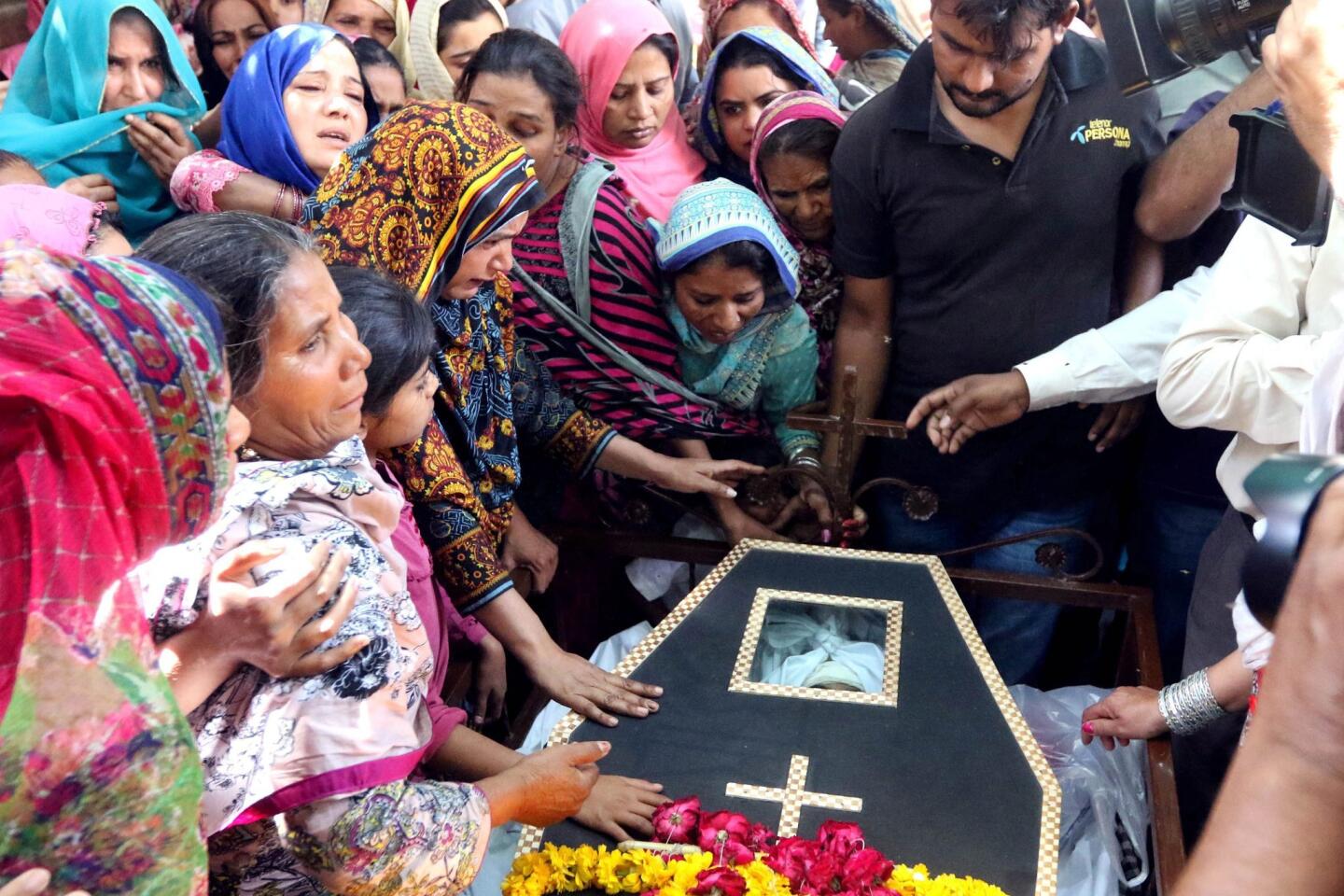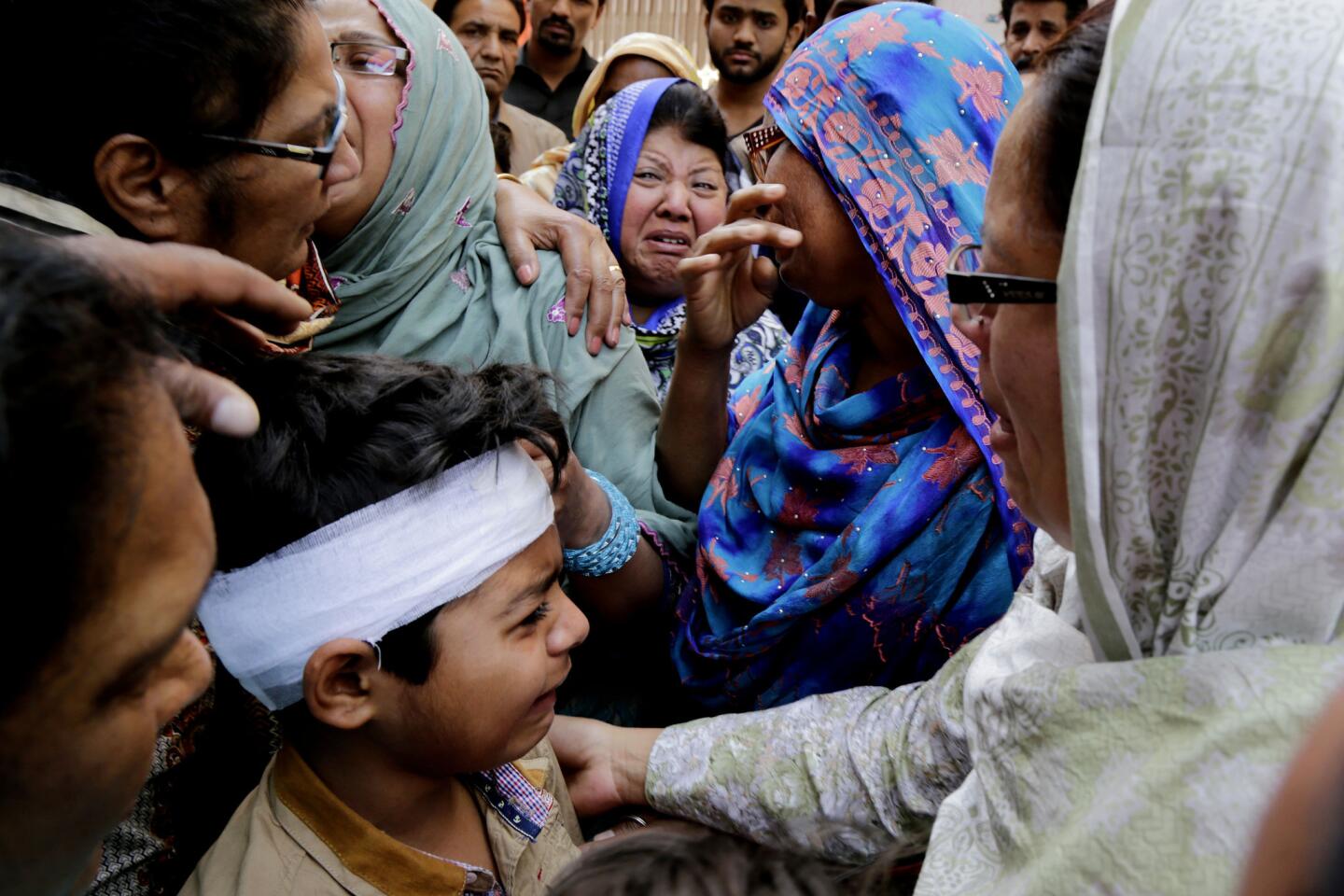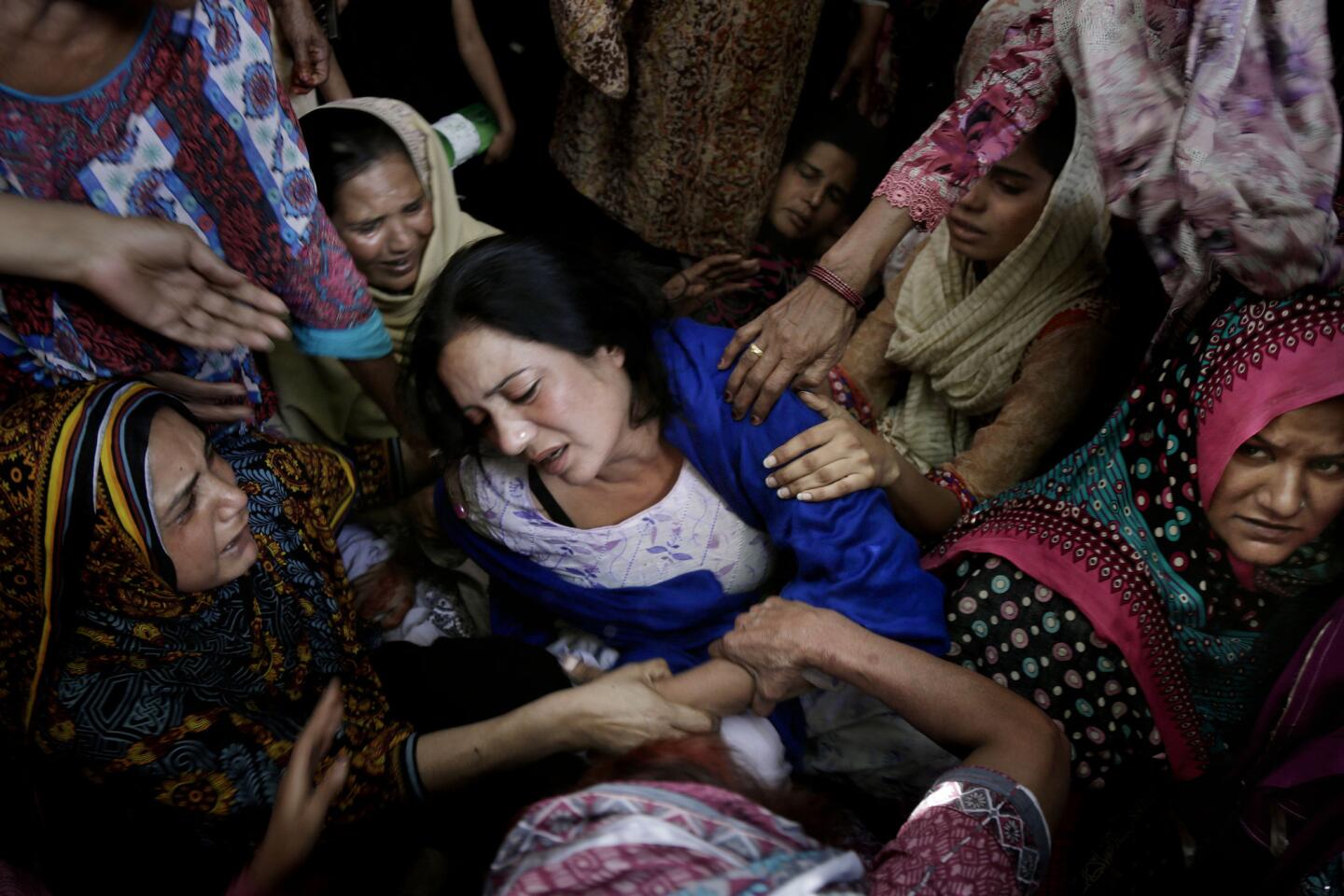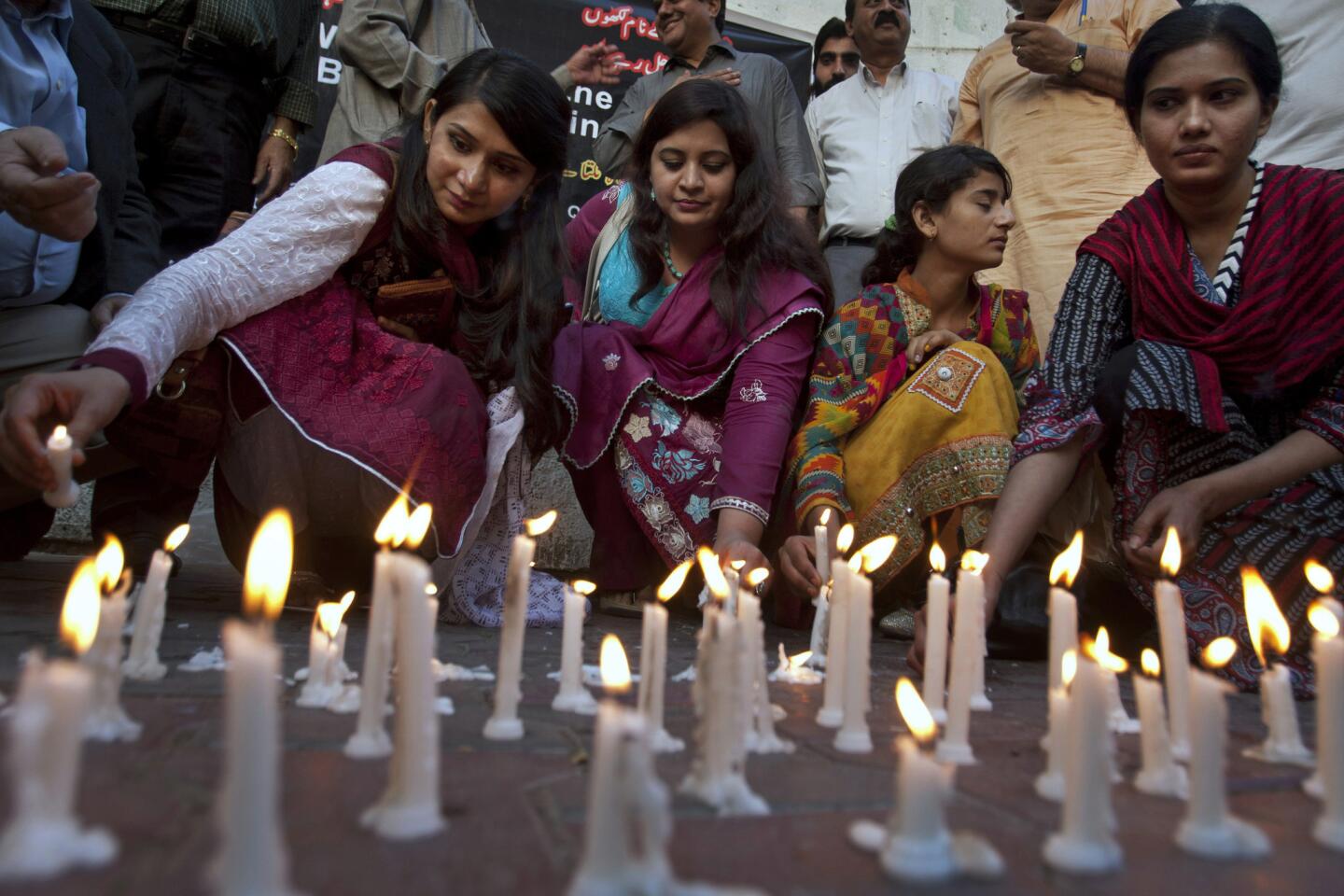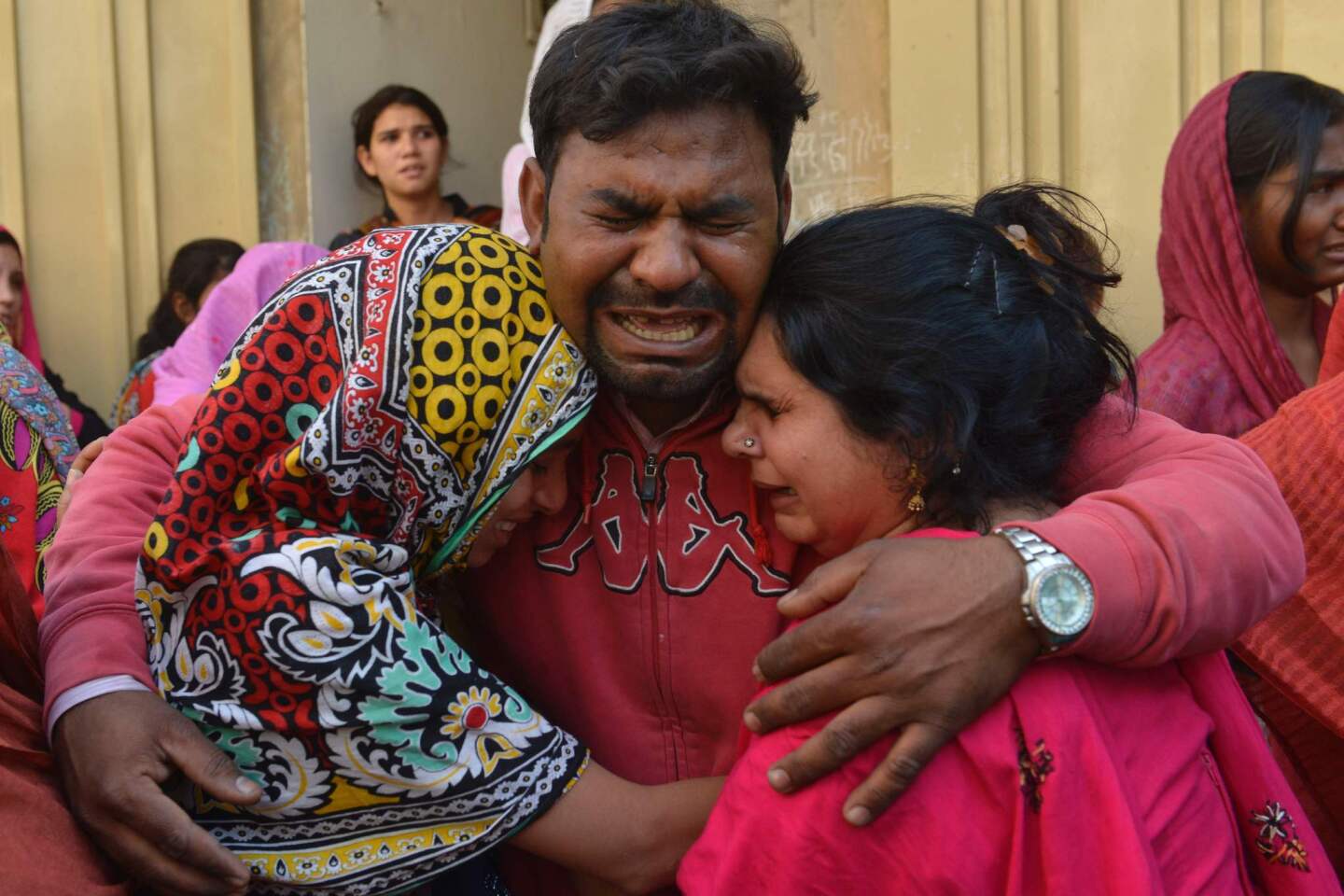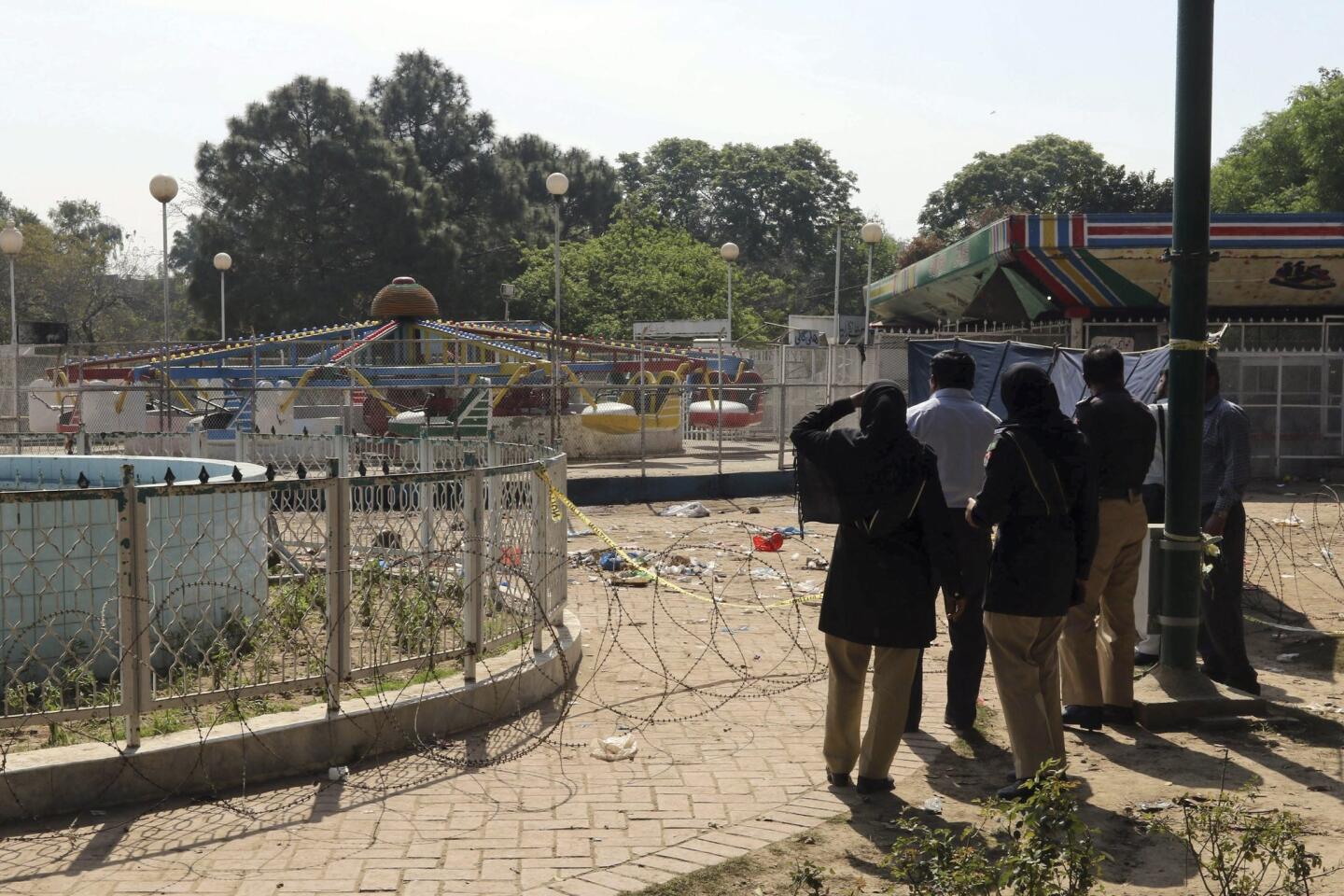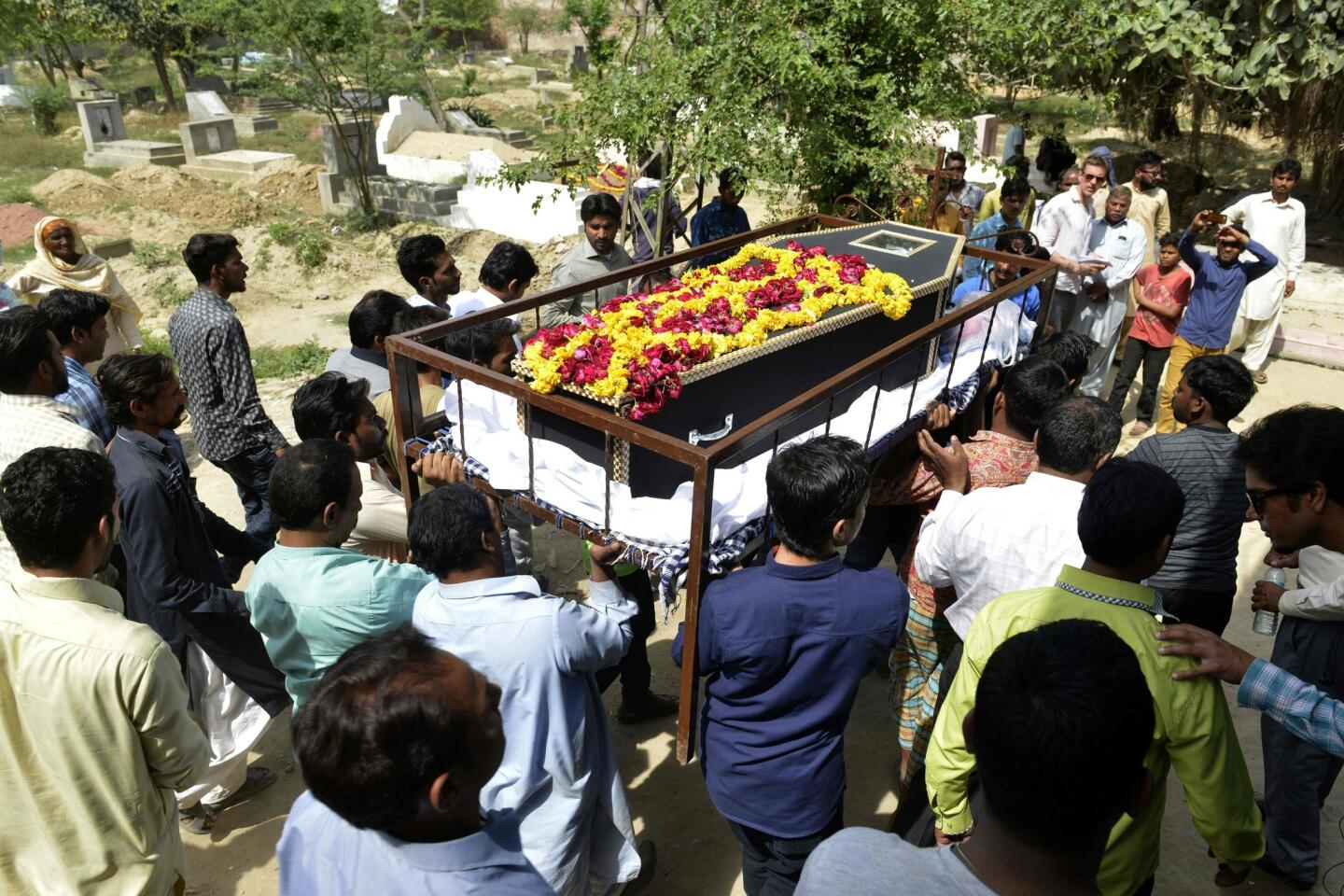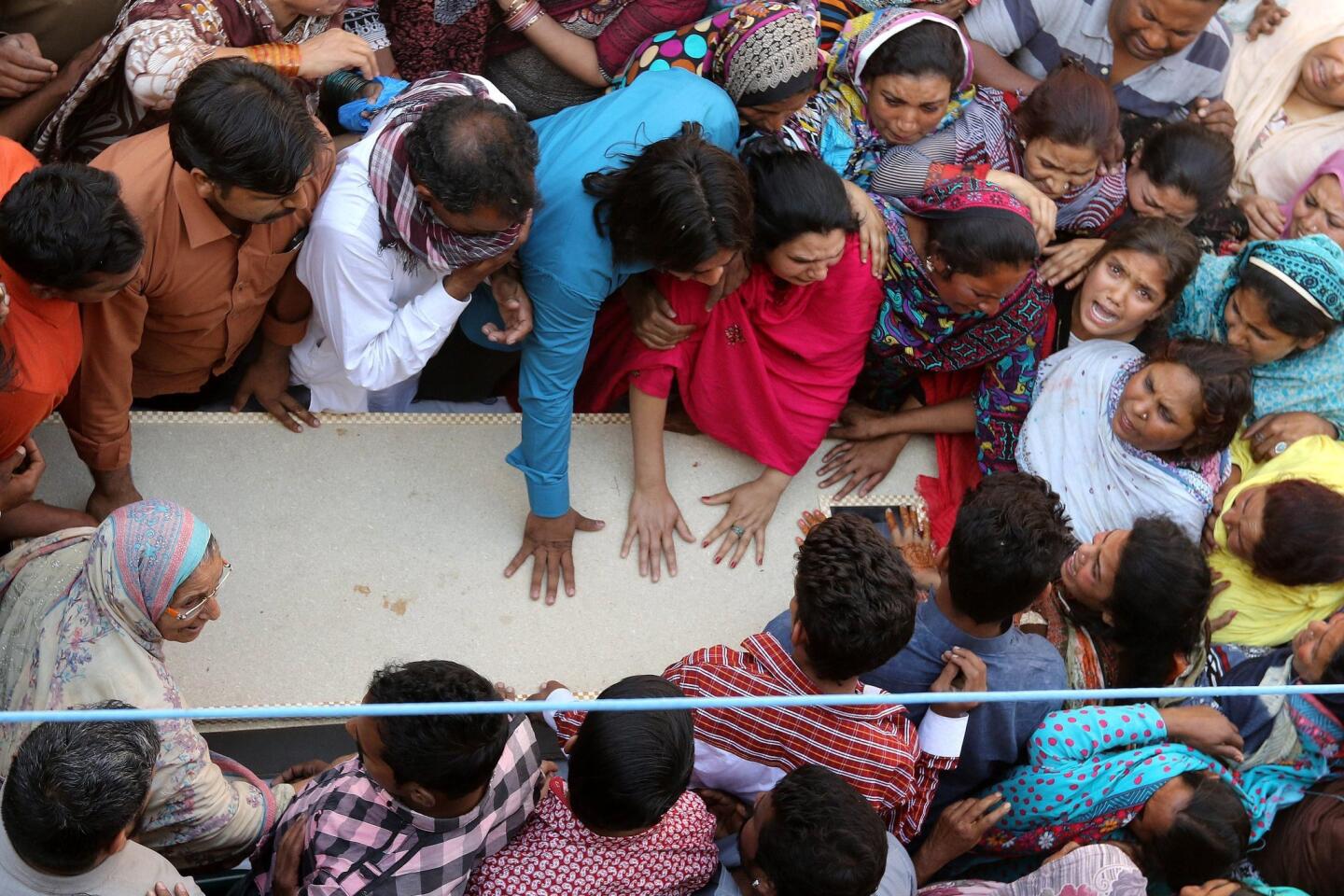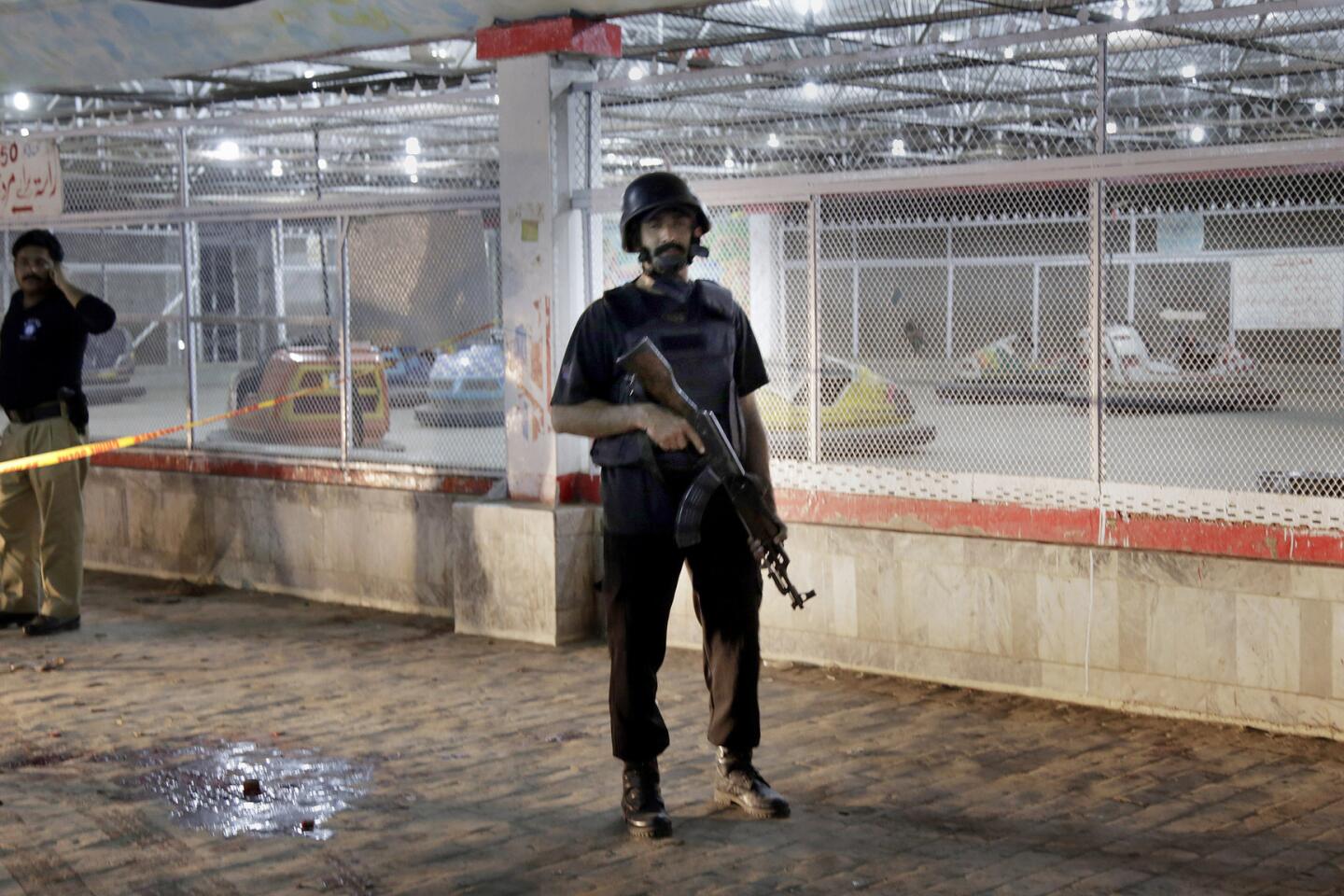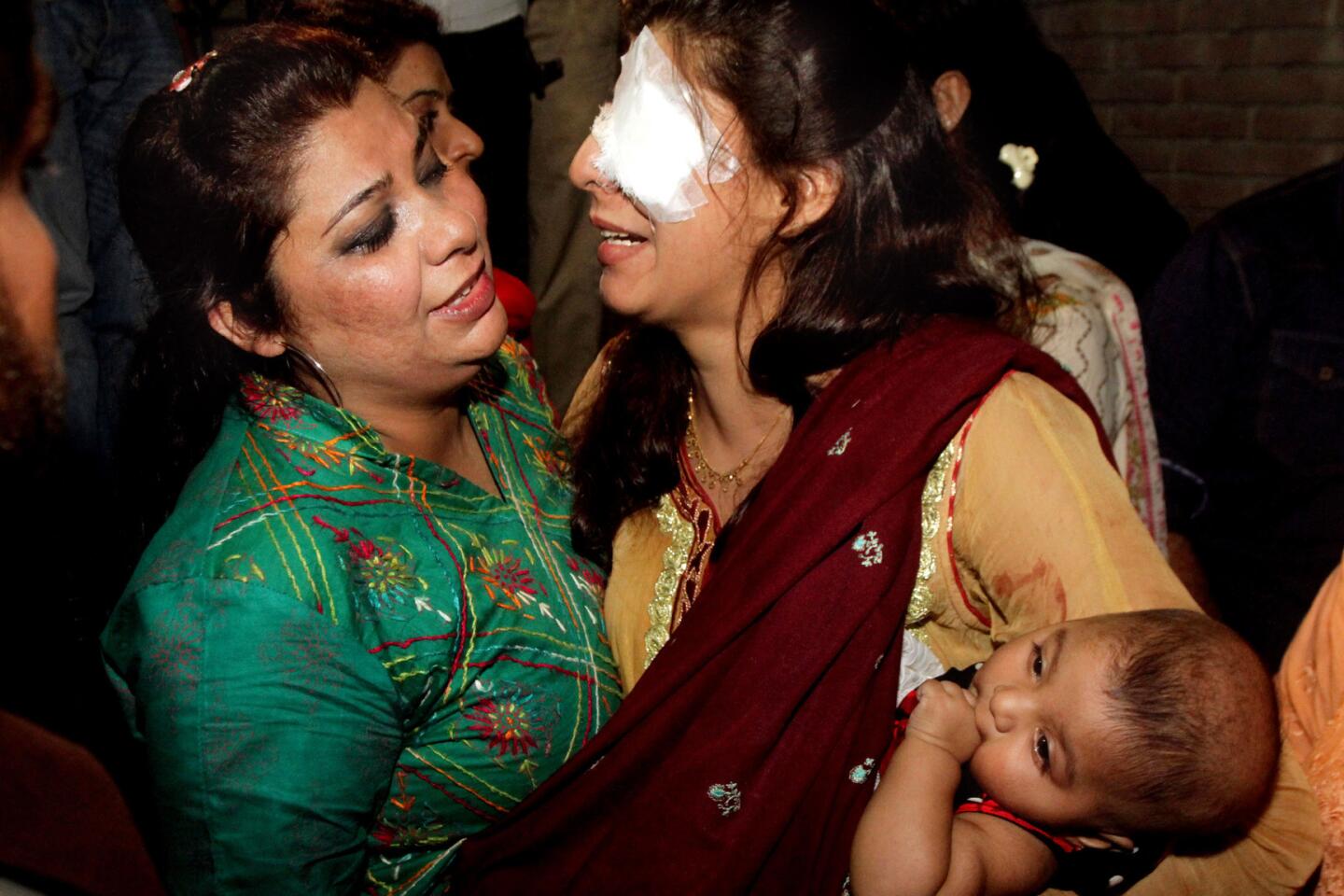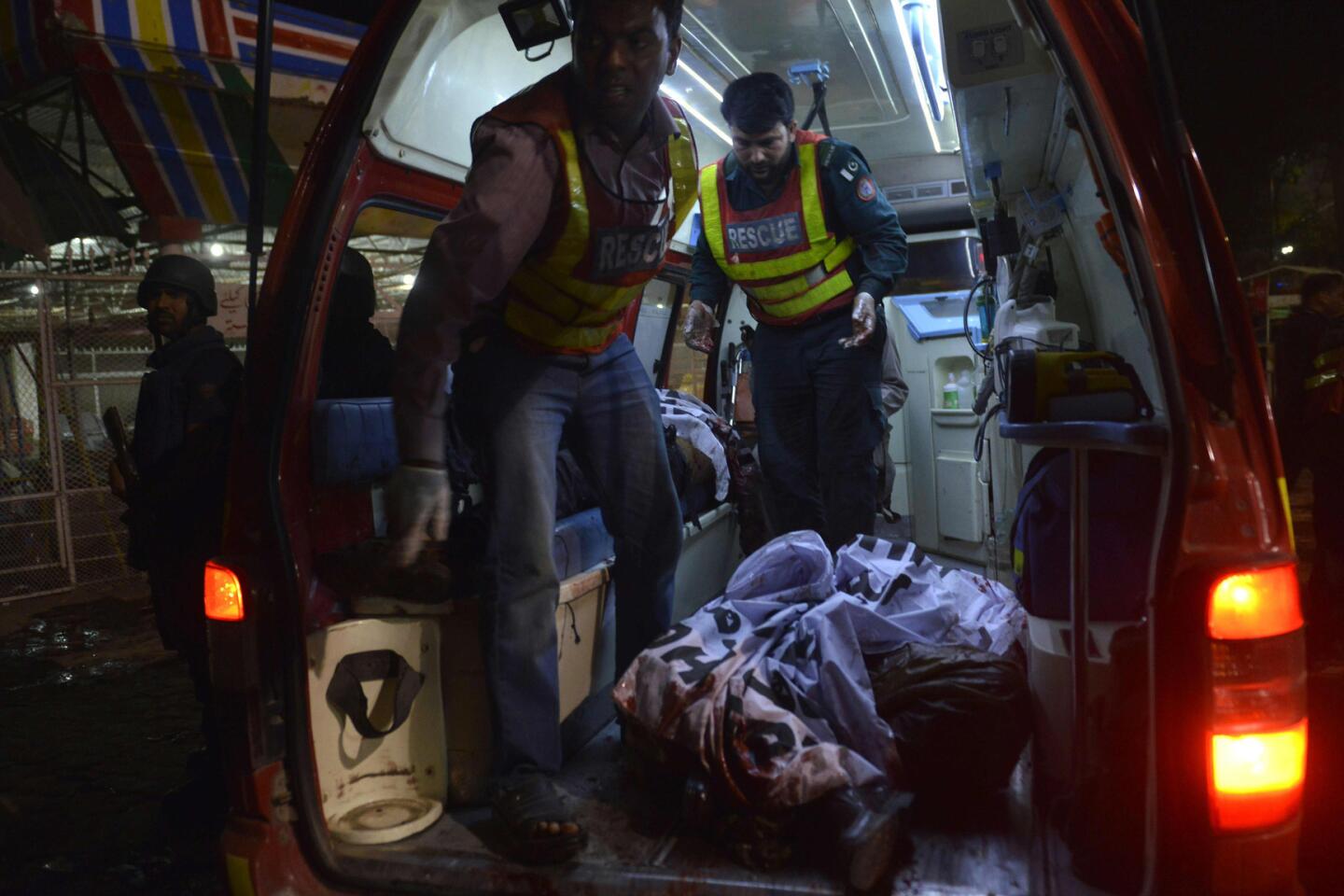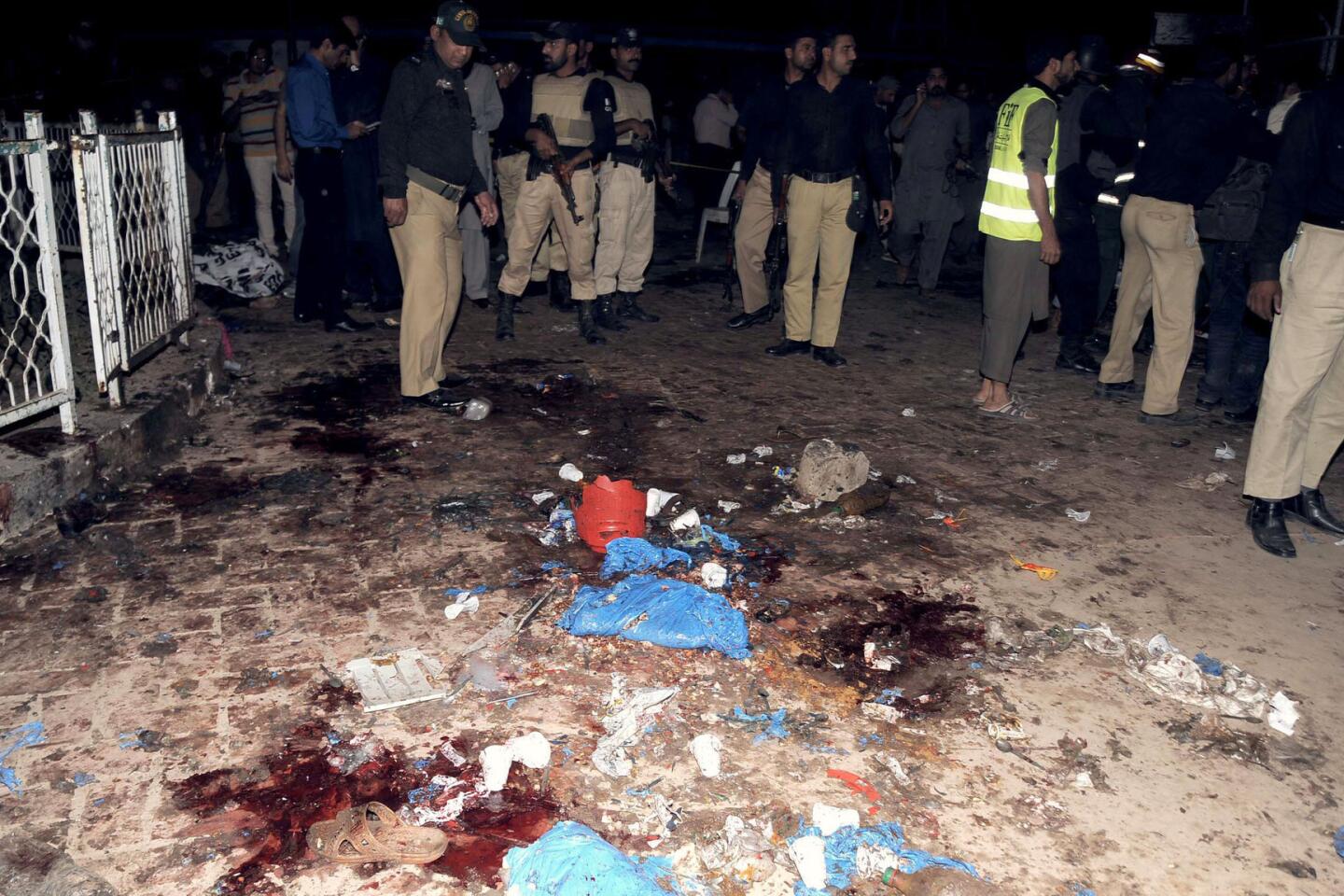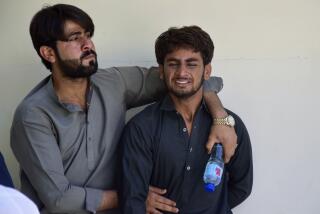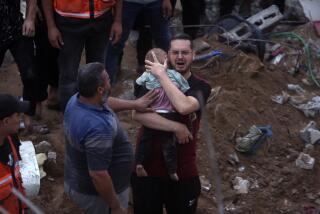After bombing at Lahore park, Pakistanis ask: ‘What was the crime of these kids?’
reporting from Islamabad, Pakistan — As families buried their children and doctors tended to scores of seriously wounded, the Pakistani military on Monday vowed a major operation to avenge a suicide bombing at a crowded public park in the eastern city of Lahore.
Officials raised the death toll in the Sunday evening bombing to 72 people, including at least 25 children. The explosion occurred as the park was packed with families celebrating Easter, among them members of Lahore’s Christian minority, although the vast majority of casualties were Muslims. About 300 more were injured.
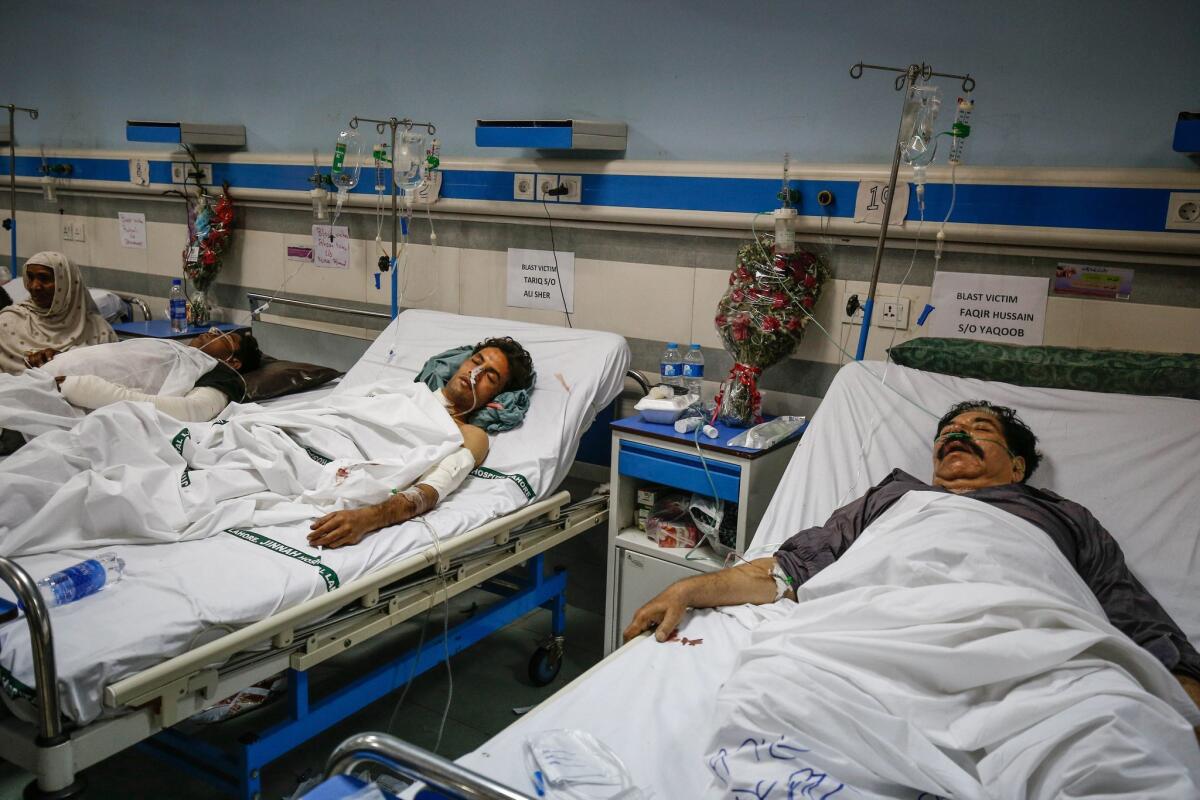
People who were injured in a suicide bomb attack are hospitalized in Lahore, Pakistan.
“What was the crime of these kids, whether they were from Christian or Muslim families?” said Muhammad Imtiaz, 32, whose brother-in-law was killed in the bombing and sister remained unaccounted for. Two of his nephews were injured.
Pakistan’s powerful army seized the initiative from the civilian government, with military officials saying that soldiers and paramilitary forces would conduct a “full-blown” operation against militants across the populous eastern state of Punjab, particularly in southern areas that are believed to be extremist strongholds.
See more of our top stories on Facebook >>
Jamaat-ul-Ahrar, a splinter group of the Pakistani Taliban militant federation, claimed responsibility for the bombing and said it targeted Christians, who make up less than 2% of Pakistan’s population of 182 million. Officials said at least 14 Christians were among the dead.
In five operations conducted following the blast, security forces arrested an undisclosed number of suspects and recovered a “huge cache” of weapons and ammunition, said the army’s chief spokesman, Lt. Gen. Asim Bajwa. Pakistan’s Dawn News reported that investigators had learned the identity of the bomber and had arrested three members of his family for interrogation.
“Terrorists have assassinated my sons and daughters in this war and, God willing, we will wipe them out from this country,” said Prime Minister Nawaz Sharif, who hails from Lahore, Pakistan’s second most populous city.
NEWSLETTER: Get the day’s top headlines from Times Editor Davan Maharaj >>
It was not the first time that Pakistanis have heard such resolve from their leaders. In December 2014, following a massacre at an army-run public school in the northeast that left 150 people dead -- most of them children -- the government and military launched a harsh crackdown against militants that included reinstating the death penalty for terrorism suspects.
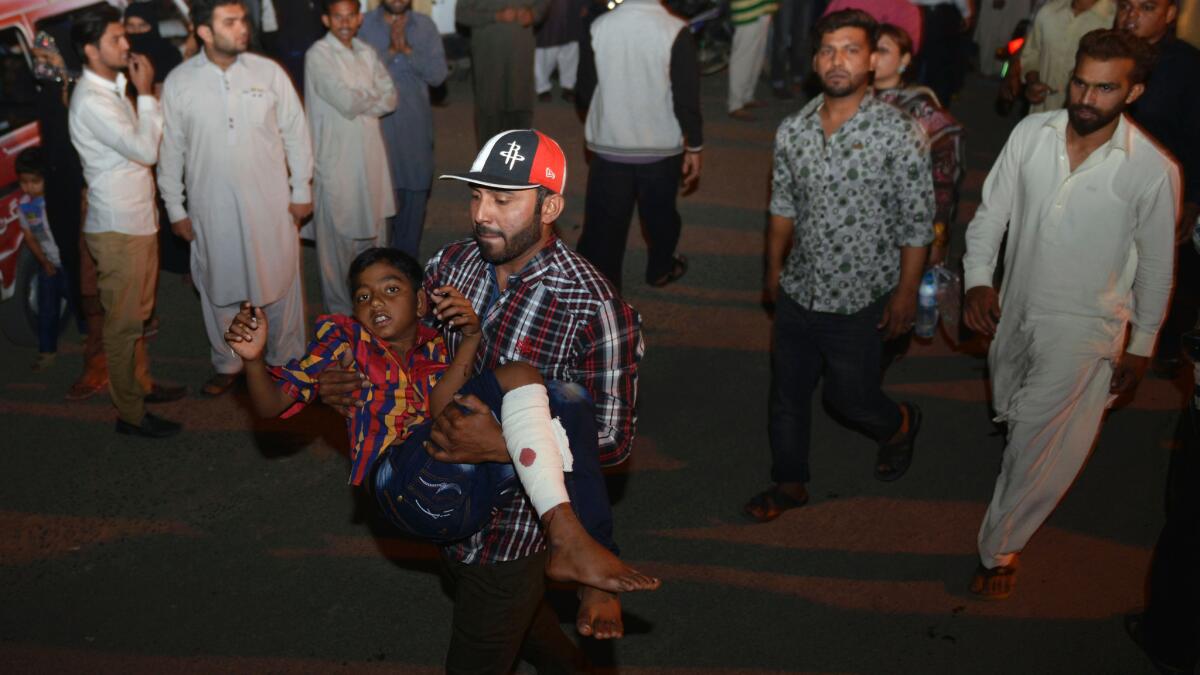
A man carries an injured child to a hospital in Lahore, Pakistan, on Sunday.
Pakistan has since put more than 320 people to death, including many death row inmates whose cases were unrelated to terrorism. Militant violence is down overall, but many Pakistanis believe the government’s policies have not made them safer – particularly as the Pakistani Taliban and its offshoots continue to wage headline-grabbing attacks against civilians.
After Sunday’s explosion, which took place in a parking lot near a set of children’s swings at the expansive Gulshan-e-Iqbal Park, Imtiaz rushed to a hospital to search for his sister and her family, who had been at the park. He found a scene of chaos, including the mangled bodies of children and medical staff tending to injury victims in overflowing corridors.
“There were bodies everywhere,” said Imtiaz, 32. “I saw blood on the floor of the hospital while dozens of injured were crying. They were horrible scenes.”
It was the second major attack against Christians in Lahore in less than a year. Last May, Pakistani Taliban militants attacked two churches in Lahore on same day, killing at least 15 Christians.
Peter Jacob, a Lahore-based Christian human rights activist, said the Christian community took precautions in the week leading up to Easter Sunday and that government forces had provided security to major Christian neighborhoods in the city. But witnesses said the park was a soft target, with scant security on Sunday evening.
“The government and Christian community were vigilant during Holy Week … but terrorists somehow had information about vulnerable areas,” Jacob said. “Instead of hitting Christians in their neighborhoods, they attacked them at public places.”
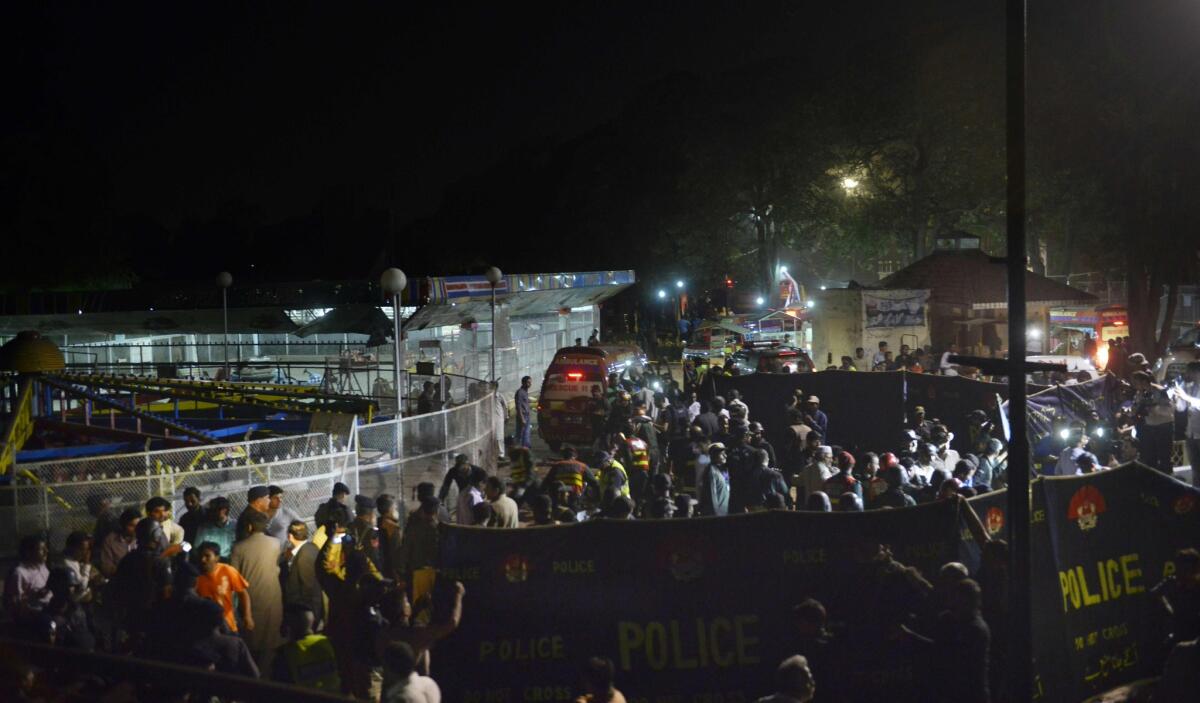
Pakistani rescuers and officials gather at a bomb blast site in Lahore, Pakistan, on Sunday.
Analysts said the attack was also directed at Sharif, who is from Lahore, and aimed at demonstrating that militants retained the capacity to stage deadly attacks despite nearly two years of military operations against their hideouts in Pakistan’s tribal areas.
Politically the attack “hurts Nawaz Sharif the most,” said Hassan Askari Rizvi, an independent security analyst in Lahore. “The attack also means that terrorists groups still have a strong network in cities like Lahore.”
Many Lahore residents rushed to donate blood, resulting in long lines at city hospitals. Television channels broadcast footage of families observing funerals and of investigators wearing face masks searching an amusement park ride that was near the blast site.
“The whole country is in a state of shock,” said Rasul Baksh Rais, a political scientist at the Lahore University of Management Sciences. “That these people can be so heartless and so cruel that they would kill children and women playing in the park – it’s really shocking.”
Sahi is a special correspondent. Staff writer Bengali reported from Mumbai, India.
Follow @SBengali on Twitter for more news from South Asia
ALSO
Afghan peace talks get a boost with Taliban rival signing on
Afghans, leaving in droves, say they see no future in their country
New Afghan drug treatment facility helps homeless addicts get clean
More to Read
Sign up for Essential California
The most important California stories and recommendations in your inbox every morning.
You may occasionally receive promotional content from the Los Angeles Times.
